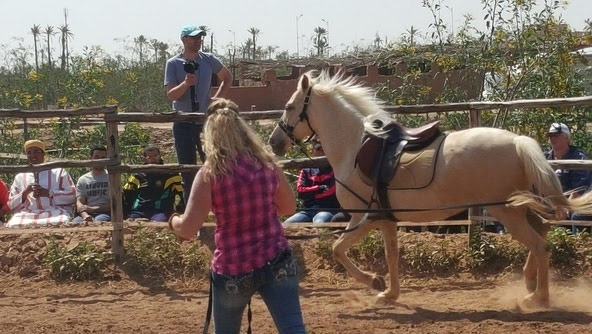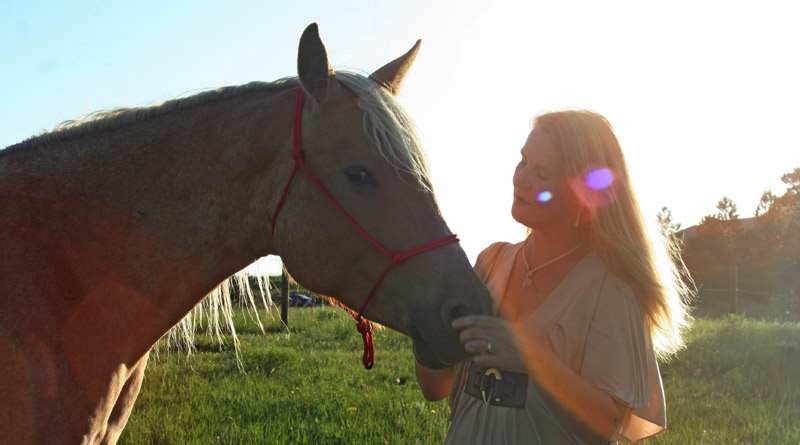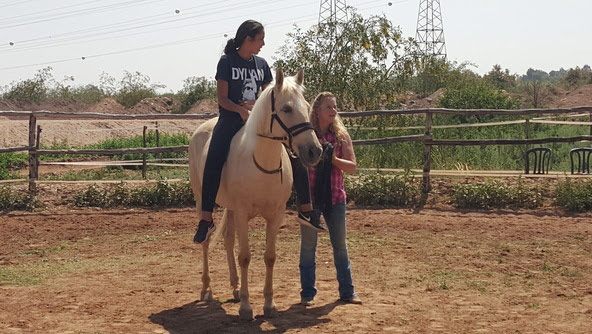Horse Trainer Shares the Language of Equus, One Country at a Time

Unlike people, horses speak the same language no matter where they live in the world. No matter what breed they are, no matter the culture they live within, no matter the native tongue of their land … their method of communication remains unaltered.
World-renowned horse trainer, animal communicator, and Usui Holy Fire Reiki Master, Anna Twinney (reachouttohorses.com and equinewarrior.org) speaks English and German. More often than not, Twinney can be found speaking “horse” and teaching others to do the same. Recently, she traveled to Morocco.
“It doesn’t matter where I travel to, the issues people experience with their horses are very similar,” Twinney explains. Morocco was no exception.
“Throughout my travels around the globe, I find people either looking for or clinging to a system. They want a method that works with 100% of horses, 100% of the time. And when the method doesn’t work, when they have run out of ‘steps’ and come to the end without the result they seek, the blame usually falls squarely on the horse,” she says.

“I met some incredible, kind, generous and enthusiastic people. It didn’t matter if they were rich or poor, experienced or new to the world of horses. As with everywhere I travel, I was asked the same question, ‘How do I get my horse to …?’, or, ‘“How do I get my horse to stop …?’. I told them the same thing I tell everyone. In order to fix the problem, you have to know why it is happening (or not happening), and that cannot be solved with a system or a quick fix. That can only be solved by communication.”
The challenge with a system is that, by its very nature, it is self-limiting and founded in linear, logical, left-brain thinking. Every system has steps to follow, expected outcomes, and rigid guidelines. In horsemanship, if a system fails, the only options are to try it again, find another system, or blame the horse, which, in extreme cases, can result in abuse of the horse.
Twinney’s methodologies, however, are founded in a fluency of the communication system of the horse.
She sums it up this way: “If you are fluent in the language of Equus a whole world of partnership and training open up for you. You begin to discover who your horse is and why he does what he does. If your training methods aren’t working, you can understand why and adapt. Be creative. When you work in this way, you are partners with your horse, solving problems, exploring all that is possible, and creating a program unique to each horse. For me that is far better, and a lot more fun, than simply training a horse and imposing a training method on every horse equally.”

While in Morocco, Twinney demonstrated her work to many people from all walks of life and interests in horses. It was this creative, communicative and cooperative approach that fascinated them the most. To see Twinney quietly speaking and working with the horses, treating each horse as an individual, and solving some of their most difficult issues right in front of their eyes was earth-shattering for some of the participants.
Many of them, for the first time, saw a side of the horses they had never seen and learned that harder wasn’t the solution, understanding was.
Twinney’s own journey into animal communication began over two decades ago. Having unlocked this missing piece of the puzzle, she knew that she had to share her knowledge. Now known the world over for her exceptional abilities, specific, verifiable methods and extensive knowledge of horses, Twinney often found animal communication techniques helpful during her work with horses as well.
“The language of the horses, called Equus, is almost completely non-verbal. While horses have the ability to vocalize and they do use it … the nuances of their language is in the subtitles only seen by those fluent in the language,” Twinney says.
Read original article at: https://www.horsetalk.co.nz/2016/09/05/horse-trainer-language-equus/

